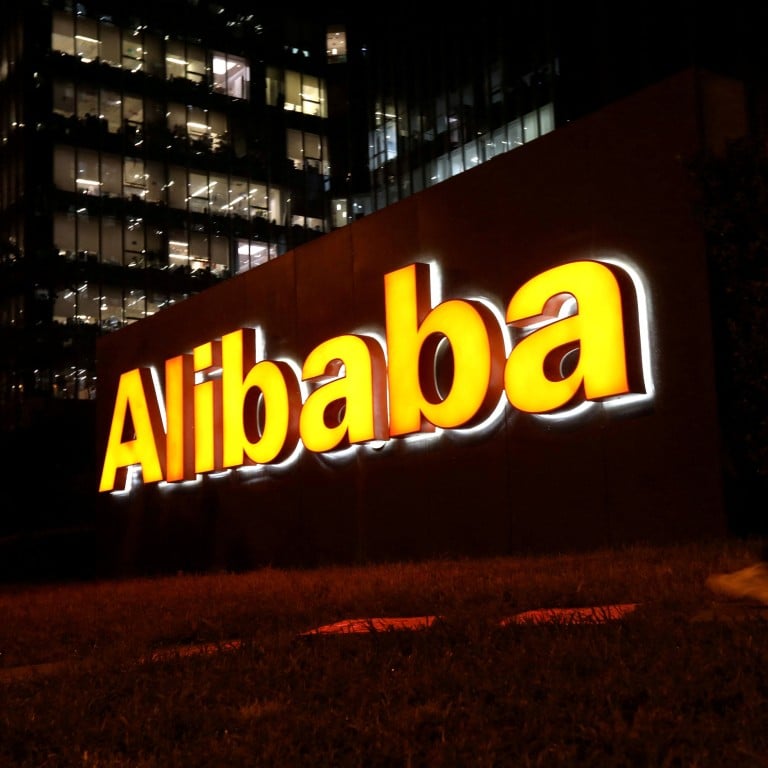
Can Alibaba’s HK$5 billion plan put Hong Kong films back on the global stage? Industry players say it’s possible
- Alibaba Digital Media and Entertainment Group’s plan to spend billions on local film and culture sectors has boosted investor confidence, experts says
- ‘Alibaba’s five-year investment plan is a shot in the arm for Hong Kong’s movie industry, which is suffering from an ageing workforce,’ industry chief adds
“Alibaba’s five-year investment plan is a shot in the arm for Hong Kong’s movie industry, which is suffering from an ageing workforce,” Hong Kong Motion Picture Industry Association chairman Crucindo Hung Cho-sing said on Tuesday.
“This investment will be focused on Hong Kong, not mainland China, making the productions truly ‘made-in-HK’, highlighting local originality and creativity with a variety of genres. This will bring the city’s movies back to the international spotlight with creative works seeking to outshine the projects of South Korea.”
Alibaba Digital Media and Entertainment Group announced on Monday that it would partner with notable Hong Kong and mainland companies to produce film and television content, as well as nurture fresh industry talent.
The division’s film also said it would set up an office in Hong Kong as its second base. Parent company Alibaba Group owns the South China Morning Post.
The plan, titled the “Hong Kong Cultural and Art Industry Revitalisation Program”, includes partnerships with Shaw Brothers Pictures, TVB, Emperor Motion Pictures, Media Asia Group, Mandarin Motion Pictures, BenXiaoHai Media Co and Huanxi Media Group.

The company said the investment plan aimed to support the development of Hong Kong’s culture and entertainment industries by producing local broadcast series, films and performances, while also backing young talent.
Alibaba Pictures and other businesses under the larger company’s entertainment and media arm, alongside online video platform Youku would divide up the funds for Hong Kong-made TV dramas, movies, events and the training of young creatives.
But Hung said it would be difficult to restore the local film industry to its heyday spanning the ‘70s and ‘90s, when Hong Kong churned out more than 200 movies a year and was the second-biggest film exporter after the United States.
“I expect the investment could produce more than 50 films. With a synergy effect to also attract other investments, I hope Hong Kong could churn out about 80 movies a year,” he said.
“Hong Kong has long attracted global attention with its action-packed and martial arts movies. The scheme will help Hong Kong further break into the overseas market.”
Alibaba media arm to invest HK$5 billion in Hong Kong’s film, culture sectors
Hong Kong Film Development Council chairman Wilfred Wong Ying-wai said the investment plan, combined with government efforts, could bring the city back into the international spotlight.
“The plan is a vote of confidence for the entertainment industry. The firm will make its own productions and touch on a variety of topics with different partnerships,” he said. “It will help consolidate Hong Kong’s status as an entertainment hub.”
Over the Lunar New Year, the local box office revenue fell 24 per cent from the same period last year, standing at just HK$48.6 million, as more consumers opt to head across the border or overseas for major holidays.
The total box office for 2023 reached HK$1.4 billion, encompassing 221 foreign films and 46 local productions.
Federation of Hong Kong Filmmakers spokesman Tenky Tin Kai-man said Alibaba Group’s plan could definitely boost investor confidence in the industry, but raised concerns over whether the city was well-equipped to attract foreign buyers.
“The scheme is very holistic, taking care of many aspects of productions with wide-ranging collaborations with different firms,” he said.
“But its success highly hinges on its execution and whether the city is ready to take on competitive projects that attract foreign buyers. There can be a lot of unpredictability. If the topic violates the national security law, then the project will need to be called off.”

Charles Cheung Chi-wai, an associate professor at Baptist University’s faculty of arts, said the scheme was a good indicator that the “Hong Kong brand” still held value, adding it would help to foster new filmmakers and create jobs.
“This investment will boost production levels and generate new employment opportunities for media production professionals, leading to an increase in job opportunities for graduates in this field,” he said.
“In the long run, it might help nurture new talent in Hong Kong’s various fields of media production.”
Lawmaker Kenneth Fok Kai-kong, who represents the culture industry, said the plan would inject momentum into the sectors since it covered various aspects of the production process.
“The current scheme includes multiple dramas and films that have a distinct ‘Hong Kong flavour’ in terms of content. This proves that Hong Kong stars, films, and dramas have a certain commercial appeal and attractiveness,” he said.
Alibaba pushes AI tools to merchants wanting to tap overseas markets
Alibaba’s entertainment and media arm has a history of investing in the city’s film industry, including co-producing Jack Ng Wai-lun’s directorial debut, A Guilty Conscience.
The courtroom drama is the highest-grossing Asian film of all time in Hong Kong, with a record-breaking box office performance of more than HK$108 million.
Alibaba Pictures is already collaborating on a raft of Hong Kong productions, such as The Trier of Fact, The Last Dance, Customs Frontline, In The Light Of Dark, Behind The Scene, Invincible Swordsman, Without Remorse, The Grey Men 2 and My Date With A Vampire.
Backed film projects in the pipeline include action film Twilight of the Warriors: Walled In starring Louis Koo and Sammo Hung, as well as Nick Cheuk’s Born Evil Seed and David Lee Kwong-yiu’s Behind the Scene.
Meanwhile, TVB and Youku will work together to roll out TV dramas such as Forensic Heroes VI: Redemption, Darkside of the Moon, The Queen of Castle and the highly anticipated The Queen of News 2.


